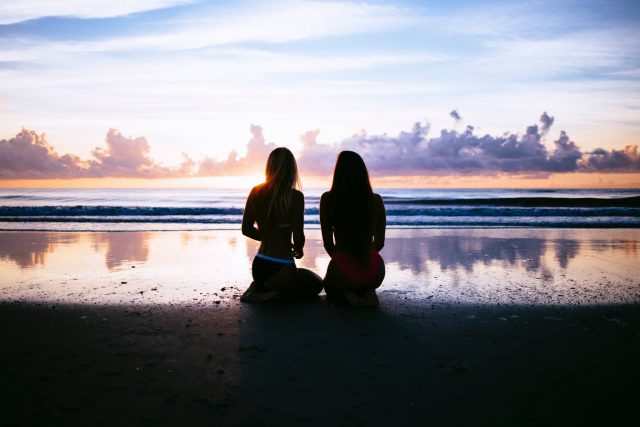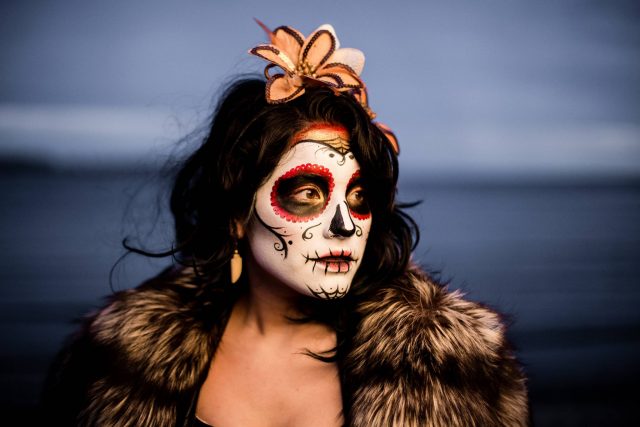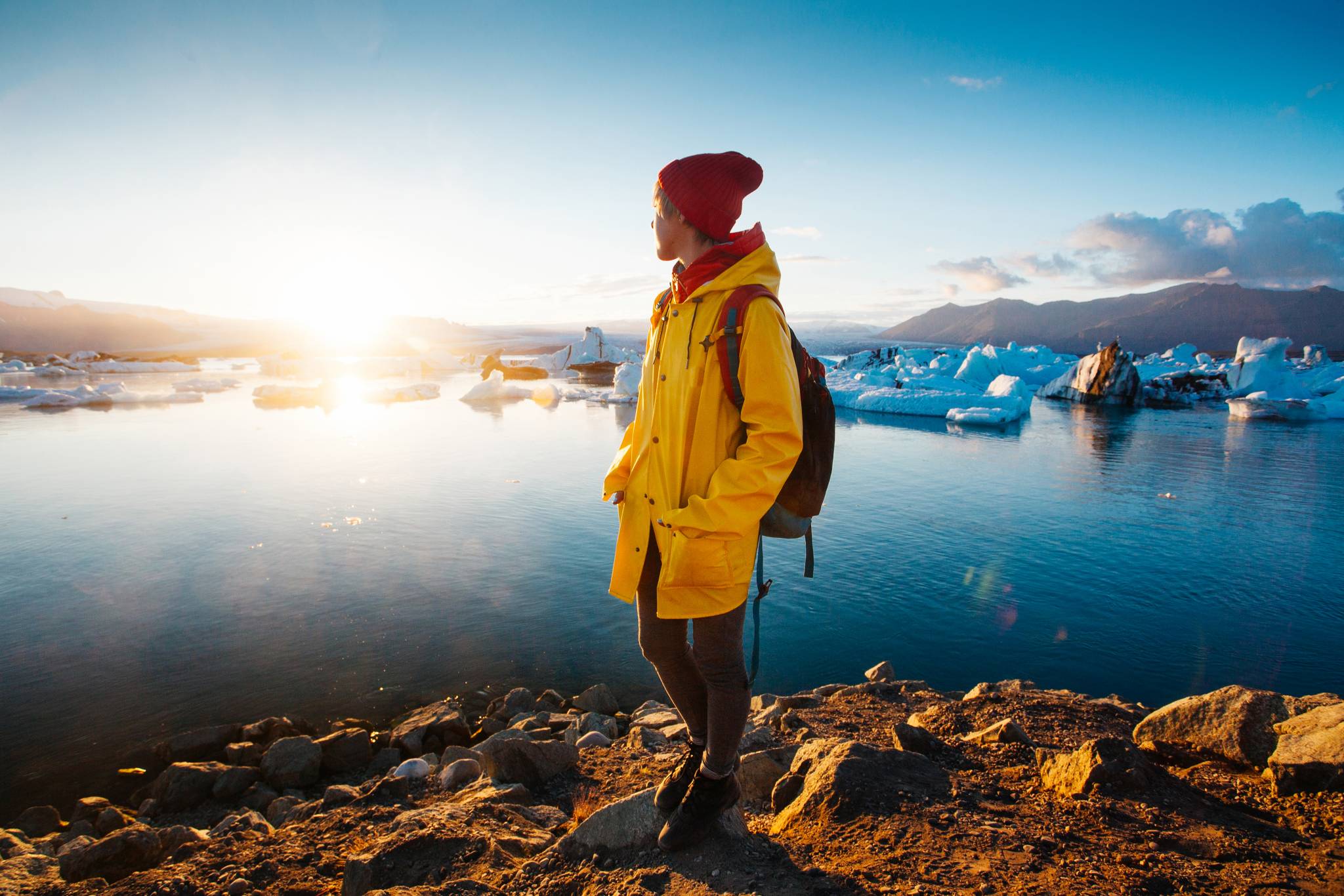Iceland is located at the edge of the world, which is what makes it both vulnerable and tough. Based on reviews left by 702 travelers, we have prepared a guide to ensure you’ll have the best experience possible. And using our free travel search tool, we have found several ways to get to this edge of the world for free.
So let’s start!
Destination: Iceland
Most common impressions
The true photographer’s paradise! Completely unspoiled wilderness. Absolutely loved Iceland and Icelanders. Excellent, inspiring, exhausting…
Seasons, activities, and places to visit
Iceland is the world’s second-largest volcanic island. Most Icelanders live along the seashore. And the interior of the island is full of waterfalls, mountains, glaciers, hot springs and pools, lava fields, and ice caves. The best way to see the country is rent a car for 5 to 7 days, hire guides (or download apps), and go exploring!
The most popular month for visiting Iceland among US tourists is July. But it will be equally good and even less crowded in any other month from May through September. In this period you can also enjoy white nights and whale watching. But if you want to see the Northern Lights, you’ll have to travel to Iceland in the period from September through April.
Discoveries and hacks
Don’t buy bottled water in Iceland. It’s awfully overpriced and completely unnecessary: it’s only sold to get money off tourists. Instead carry a reusable bottle with you and fill it at the tap. Icelandic tap water is pure and delicious, because it’s being naturally filtered through lava—the world’s most effective filter.
But bear in mind that the hot water from tap may smell and taste badly. This happens because Icelanders never heat water to get it hot. They simply get cold and hot water from different natural sources. So hot water has a geothermal origin and smells of sulphur (similar to the smell of rotten eggs).
Hack!
Many tourists buy bottled water because when they turn on the tap, the water smells. The trick to getting tasty water from the tap is to let it stream until it’s completely cold. This will mean that you get only water from the cold source without any sulphur water from the hot geothermal source.
What’s more, it’s not only safe to drink tap water in Iceland, you can drink water from lakes, streams, and rivers. But of course, you shouldn’t drink mud or sea water.
Checklist for a better experience
 Bathing in hot springs
Bathing in hot springs
Iceland’s outdoor heated pools contain sulfur water from natural hot springs. Regardless of its strong smell, such water is very pure, and the pools don’t require any chemical processing. What’s more, sulfur is very good for your skin, makes it soft, and leaves no smell after bathing. Still, such hot bathing in Iceland has two strict rules:
Always take a shower BEFORE bathing, or pools will soon become dirty because of the high number of visitors;Never get into a hot pool on an empty stomach, as this may leave you feeling ill.
And yes, be sure to book hot pool bathing in advance.

Comfort clothing
Regardless its location, Iceland has mild temperatures (average low for the coldest months is about 26°F) because of the Gulf stream. However during the same day you may experience all of the elements—sun, wind, and rain. So dress in layers and bring clothing that is water- and wind-proof. Waterproof walking boots are essential. In winter months you may also need proper snow shoes, a warm, close-fitting balaclava to protect your head and neck, and, especially for photographers, fingerless winter gloves.

Photographing
Iceland is both extremely appealing to photographers and a tough location for shooting. So be sure to protect your camera. Many travelers even recommend adding specific camera insurance. If you don’t want to take this route, you can simply bring a waterproof camera with a basic repair kit. And yes, to avoid wasting time and missing out on great shots, don’t forget to have spare camera batteries on hand.

Vulnerable wildlife
Minimize any environmental impact as much as possible. Icelandic wildlife is isolated and, therefore, extremely vulnerable. You should not bring any pets, or even clothes which were in contact with animals from other countries and not cleaned afterward. These can cause an ecological disaster, and thus they are strictly controlled by local police and residents.
 Isolation
Isolation
Iceland imports almost everything, so all of the goods you see in shops will be very expensive. Be sure to plan thoroughly and bring all the essentials with you.
![]()
Transport
Buses are the only form of public transportation in Iceland. But with a US driving license, you can easily rent a car. And bear in mind, the price for 5, 6, or 7 days of car rental will be the same.
How to get to Iceland for free
Reykjavik airport (RKV) welcomes about 820,600 US tourists annually (with peak travel in July). Be the smart one: get there for free.
For a round-trip ticket and with $2,500 average monthly spending, you’ll need a sign-up bonus from just one credit card and at least 4 months to earn the required rewards:
- 50K Asia Miles with Premier Rewards Gold card from AmEx (50K points sign-up bonus), flight by Cathay Pacific;
- 60K MileagePlus miles with United MileagePlus Club card (50K miles sign-up bonus), flight by United;
- 60K Flying Club miles with Chase Sapphire Reserve (50K points sign-up bonus), flight by Virgin Atlantic.
Use our free travel search tool to find the best options based on your average monthly spending, current credit cards, and loyalty programs.
The bottom line
Iceland recharges you. It’s unusual, beautiful, tough, and refreshing. It equally welcomes solo travelers, couples, companies, families with kids, the young and the old. We recommend Iceland for a week-long summer vacation, but you may also want to experience it in different seasons. Simply plan in advance. To arrange round-trip travel to Iceland for free, you will need on average only one credit card sign-up bonus per person and 4 months of regular spending with one particular card. Use our free travel search tool to find the option that suits you best.





































